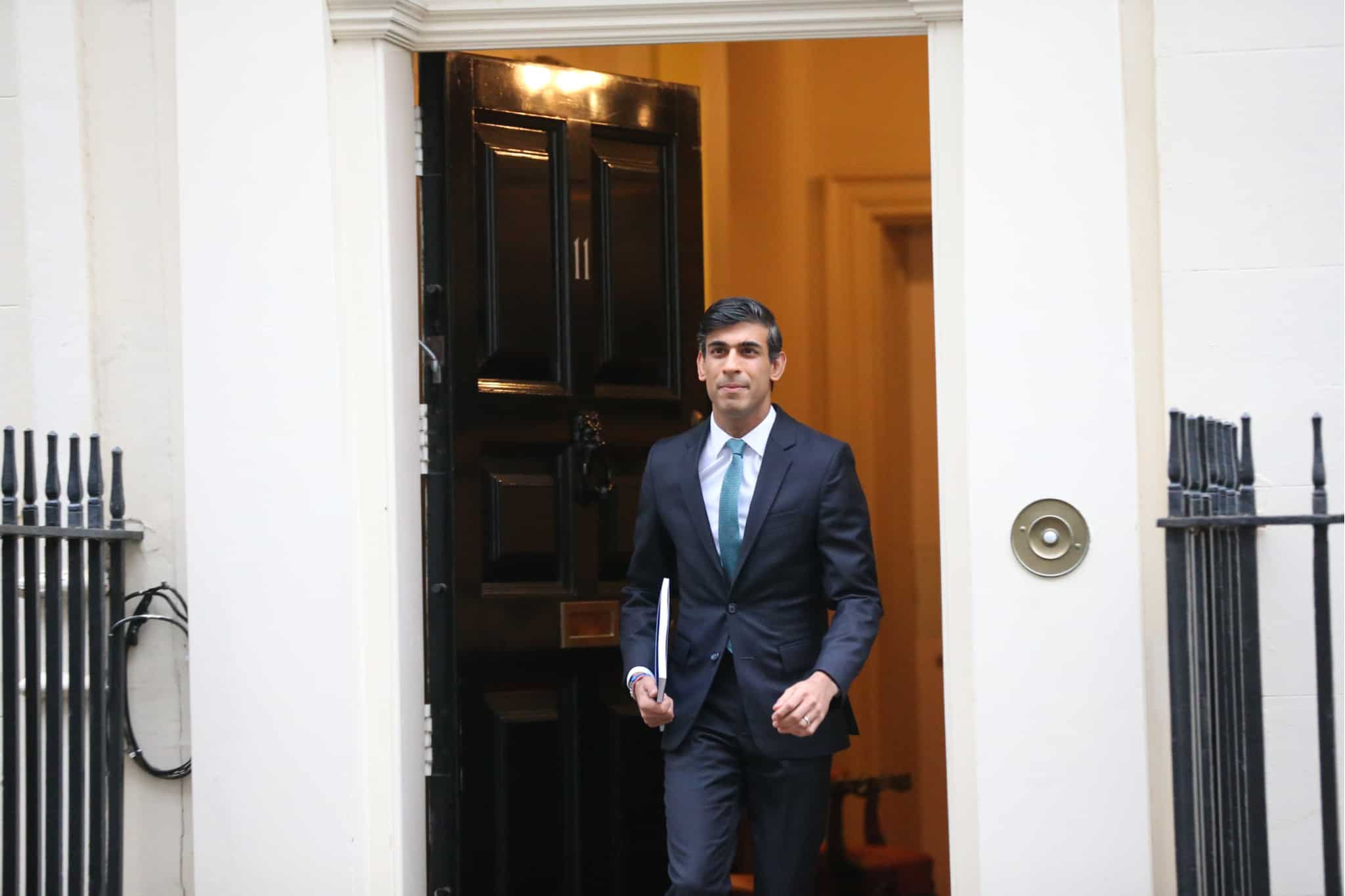


“Employment is up, investment is growing, public services are improving, the public finances are stabilising, and wages are rising.” This is the backdrop against which Rishi Sunak presented the 2021 Autumn Budget.
Promising “a stronger economy for the British people”, the chancellor outlined his taxation and spending proposals. Here’s a summary of the key points and what they mean for you.
Firstly, though, a reminder of two important tax changes that have already been unveiled.
2 important announcements already made
Back in September, the prime minister made two headline-grabbing tax announcements.
From April 2022, National Insurance rates for both employees and the self-employed will rise by 1.25 percentage points across earnings bands. Millions of employees and many employers will see their National Insurance contributions increase, raising around £12 billion a year for the Treasury.
This rise will be rebranded as a “Health and Social Care Levy” from April 2023, when National Insurance rates will revert to their current levels.
From April 2023, anyone who is working beyond the State Pension Age will be asked to pay 1.25% on their earned income for the first time.
In addition, Dividend Tax rates will also rise 1.25 percentage points from April 2022. The £2,000 allowance will remain, but anyone earning more than £2,000 in dividends will pay a higher rate of tax.
The economy is recovering quicker than expected
The chancellor began his speech by outlining Office for Budget Responsibility (OBR) data that expects the economy to return to pre-Covid levels at the start of 2022.
The OBR has revised their growth estimate for the UK economy from 4% to 6.5% in 2021, then forecasts 6% growth in 2022, followed by 2.1%, 1.3% and 1.6% over the next three years. They also revised down the effect of Covid “scarring” on the economy from 3% to 2%.
Sunak also said that he expects inflation to average 4% over the next year. He highlighted two reasons for this:
- As economies around the world reopen, demand for goods has increased more quickly than supply chains can meet
- The pressures caused by supply chains and energy prices will take months to ease.
“I am in regular communication with finance ministers around the world and it’s clear these are shared global problems, neither unique to the UK, nor possible for us to address on our own,” he added.
The improving fiscal position also means that the chancellor forecasts a return to spending 0.7% of GDP on foreign aid before the end of this parliament.
The chancellor also confirmed that every government department will get a real terms rise in spending each year.
Tax
While the main tax announcements have already been made, the chancellor announced several reforms:
- A new 4% levy on property developers with profits of more than £25 million, to help fund a £5 billion fund to remove unsafe cladding
- A reduction in air passenger duty for domestic flights between UK airports from April 2023. 9 million passengers will see their duty cut by half, boosting regional airports. There will also be an increase in duty for long-haul flights of more than 5,500 miles
- The bank surcharge, levied on bank profits, will reduce from 8% to 3% from April 2023. The chancellor said that this should help bolster London’s competitiveness as a global financial centre after Brexit
- The planned rise in fuel duty has been cancelled. The average car driver now saves £1,900 a year because of a 12-year freeze in fuel duty.
In a tiny technical change, the deadline for residents to report and pay Capital Gains Tax after selling UK residential property will increase from 30 days after the completion date to 60 days.
The chancellor also set out plans to reform alcohol duty, made possible because the UK has now left the European Union.
Arguing that the tax, first introduced in 1643 to pay for the Civil War is “a mess”, the main duty rates will reduce from 15 to 6 around the general principle of “the stronger the drink, the higher the rate”.
- Small Brewers Relief will be extended to cider makers and other producers making drinks less than 8.5% ABV
- The duty premium on sparkling wines will end, so drinkers will pay the same duty on prosecco and English and Welsh sparkling wine as on still wines
- A new “draft relief” will see a lower duty rate on draft beer and cider. Set to benefit community pubs, this cuts duty by 5% and represents the biggest cut to cider duty since 1923 and the biggest cut to beer duty for 50 years.
Shares in pub chain JD Wetherspoon jumped 5.5% on the news.
Finally, the chancellor announced a total of £7 billion of cuts to business rates. The retail, hospitality, and leisure sectors will benefit from a 50% business rates cut for one year, enabling businesses to claim a discount on their bill up to £110,000. This will benefit cinemas, music venues and so on.
Sunak concluded his speech by confirming that “my goal is to reduce taxes” calling it “my mission for the remainder of this parliament”.
Despite this, the OBR has confirmed that the tax burden is set to rise from 33.5% of GDP recorded before the pandemic in 2019/20 to 36.2% of GDP by 2026/27.
This is the highest level since late in Clement Attlee’s post-war Labour government in the early 1950s, when the economy was struggling after the economic shock of the second world war.
Housing
To boost the building of new homes, the chancellor announced an £11.5 billion fund to build up to 180,000 new affordable homes. He described it as “the largest cash investment in a decade, 20% more than the previous programme”.
Sunak also confirmed a £1.8 billion brownfield fund, which will help “unlock 1 million new homes”.
Savings
The chancellor announced the creation of a new National Savings & Investment (NS&I) Green Savings Bond.
These were made available to customers via NS&I on 22 October and will be on sale for a minimum of three months. These three-year fixed-term savings products will pay an interest rate of 0.65% and customers can invest between £100 and £100,000.
As with all NS&I products, the Green Savings Bonds come with a HM Treasury-backed 100% guarantee.
The Treasury also announced that the Individual Savings Account (ISA) annual subscription limit will remain at £20,000 in 2022/23. The annual subscription limit for Junior ISAs and Child Trust Funds for 2022/23 will be maintained at £9,000.
Changes to the National Living Wage and Universal Credit
The National Living Wage (the minimum wage) for over-23s will increase from £8.91 to £9.50 an hour. This represents an increase of £1,000 a year for a full-time worker and more than 2 million people will benefit.
“To make sure work pays”, the chancellor announced a change to the Universal Credit taper from 63p to 55p and promised to introduce this before December 1. He will also increase work allowances by £500 a year to help working families with the cost of living.
This enables more working families on the lowest incomes but working to keep more of their earnings. Sunak says that a single mother of two renting, and working full-time on the National Living Wage, will be better off by around £1,200.
Other spending announcements
Sunak unveiled a raft of spending commitments in areas from education to health.
- £21 billion on roads and £46 billion on railways
- A guarantee to spend £5.7 billion for London-style transport systems across city regions
- Spending on cycling infrastructure of more than £5 billion
- 20,000 new police officers, an extra £2.2 billion for courts and rehab facilities, and £3.8 billion for prison-building
- £300 million towards A Start for Life, supporting new parents, and £150 million for Early Years training and holiday programmes
- At least 100 places will benefit from the “levelling up” fund. The first round of successful bids to the fund, worth £1.7 billion, have been announced, including projects in Stoke-on-Trent, Bury and Burnley
- £500 million in funding to help people back into work in “the most wide-ranging skills agenda this country has seen in decades”. This includes careers help for older workers and builds on extra funding for apprenticeships and traineeships already announced in the spring.
Sunak also announced £205 million to transform grass-roots sport by funding up to 8,000 community sports pitches. He also committed £11 million towards the FA bid to host the 2030 World Cup.
There will also be £2 million for a new Beatles attraction on the Liverpool waterfront.
Get in touch
If you have any questions about how the Autumn Budget will affect you and your finances, please get in touch.
Please note
This article is for information only. Please do not act based on anything you might read in this article. All contents are based on our understanding of HMRC legislation, which is subject to change.


